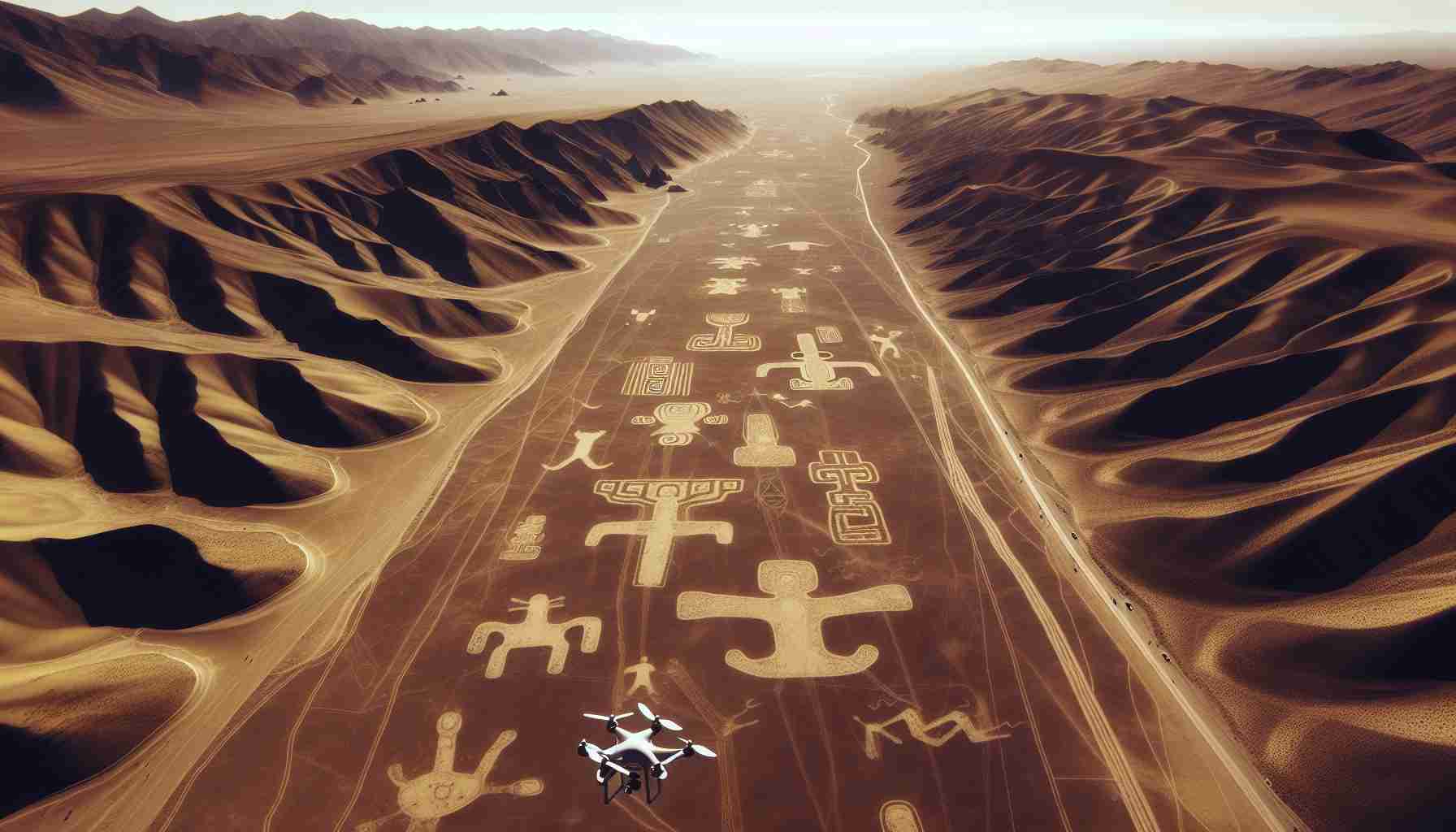In a groundbreaking discovery, Japanese researchers, with the aid of artificial intelligence, have identified 303 previously unknown geoglyphs in the Nazca Desert located in southern Peru. This research marks a significant advancement in the use of technology for archaeological exploration.
Masato Sakai, an archaeologist at Yamagata University, highlighted how AI has revolutionized the mapping process. He elaborated that the integration of AI technology allowed them to analyze the distribution of these large-scale ground drawings with exceptional speed and accuracy, a feat unattainable through traditional methods.
Traditionally, researchers depended on high-resolution imagery to visually identify geoglyphs, a process that was both time-consuming and prone to oversights. The collaborative effort between the Nasca Institute and IBM Research has paved the way for this remarkable finding, which was recently published in the Proceedings of the National Academy of Sciences.
The Nazca lines, which date back approximately two millennia, have long captivated scientists and historians. These UNESCO World Heritage sites feature geometric designs and animal shapes that are unique in their visibility from the air, yet their exact purpose remains shrouded in mystery. While some experts propose that these lines served as an astronomical observatory, others believe they functioned as a form of calendar. Current research continues to explore the enigmatic significance of these ancient creations.
Enhancing Discovery: Tips and Insights Inspired by AI’s Role in Unveiling Nazca Geoglyphs
The recent discovery of over 300 new Nazca geoglyphs through artificial intelligence not only sheds light on ancient civilizations but also offers useful insights for modern-day applications in various fields such as life, work, and school. Here are some valuable tips and interesting facts inspired by this groundbreaking research.
Embrace Technology in Learning and Exploration
The use of AI in identifying the Nazca geoglyphs exemplifies how technology can enhance our understanding of various subjects. Whether you’re a student or a professional, embracing new technologies such as machine learning, data analysis, and visualization tools can significantly improve your efficiency and effectiveness. Look for online courses that teach these skills, as they are increasingly valuable in the job market.
Data is a Gold Mine
The successful identification of geoglyphs showcases the power of analyzing large sets of data. In our daily lives or at work, you can leverage data analytics to make informed decisions. Tools like Google Analytics, Microsoft Excel, or Tableau can help a student or a business professional draw insights from vast amounts of information. Mastering these tools can give you a competitive edge.
Collaborative Efforts Lead to Innovations
The collaboration between the Nasca Institute and IBM Research is a reminder that teamwork often leads to greater innovation. In your academic or professional life, seek interdisciplinary collaborations. Working with others who have different skills and backgrounds can lead to unexpected solutions and creative projects.
Continuous Learning and Adaptation
Archaeology is a field that constantly adapts as new discoveries are made. Similarly, in your career or studies, be open to learning new methods and adapting your strategies. Stay updated with trends in technology and education to remain relevant and innovative in your field. Continuous learning platforms like Coursera and edX can provide valuable resources.
Recognize the Importance of Cultural Heritage
The Nazca lines connect us to the diverse cultures of the past. Awareness of cultural heritage can enhance critical thinking and empathy in our interactions today. Whether in the classroom or workplace, understanding different perspectives helps foster respectful and inclusive environments.
Explore Careers with a Technology Focus
As artificial intelligence becomes central to various fields, consider careers that incorporate such technologies. Fields like archaeology, environmental science, marketing, and healthcare are increasingly leveraging AI for improved outcomes. Research on job opportunities that intersect with technology to pave your career path.
Stay Curious
The enigmatic nature of the Nazca geoglyphs reminds us of the value of curiosity. Cultivating a mindset that encourages questioning and exploration can lead to new discoveries in your personal and professional lives. Make it a habit to read widely and engage in discussions that challenge your thinking.
The uncovering of the new geoglyphs signifies not only a triumph for research but also for the infinite possibilities that lie in the fusion of technology and human curiosity. By adopting these tips and remaining engaged with modern technologies, you can enhance your learning, boost your career prospects, and contribute to our collective understanding of the world.

















